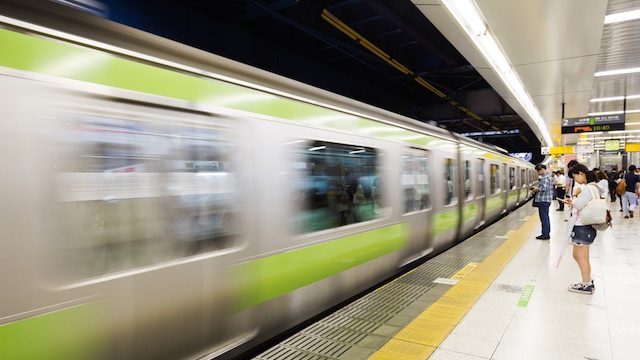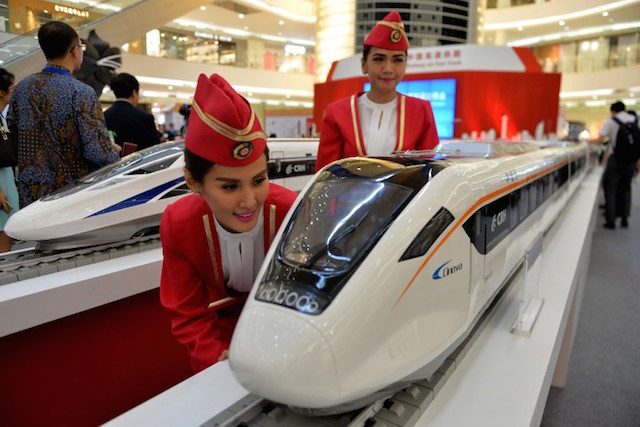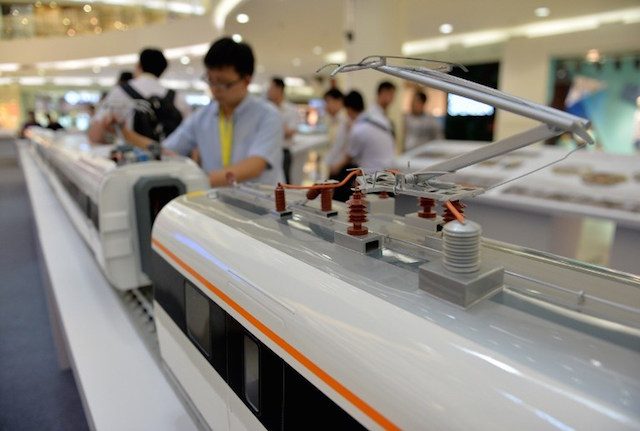SUMMARY
This is AI generated summarization, which may have errors. For context, always refer to the full article.

JAKARTA, Indonesia – A week since Indonesia defended its railway project after an ambiguous bidding angered Japan, politicians and analysts weighed in on the $5-billion project that spurred months of mixed messages from the Indonesian government.
Since early this year, China and Japan were locked in a heated contest to build Indonesia’s first high-speed railway. Japan, a top-three investor in Indonesia with huge stakes in the automotive and mining sectors, seemed destined to build the high-speed railway until China muscled in with a counter offer.
The schmoozing intensified in August, ahead of August 31, when Widodo was expected to announce the successful bidder – only for the government to suddenly announce that the project had been shelved, citing cost and feasibility concerns.
At that time, Chief Economics Minister Darmin Nasution, met with the Japanese ambassador to tell him that Indonesia would pursue a medium-speed rail option instead and throw open the bidding process to other competitors.
The decision led to China and Japan to submit new proposals but by end of September, Indonesia abruptly announced it chose China to build the railway. By October 1st, Indonesia again changed its mind saying China’s original bid for a high-speed train has been accepted.
Paul Rowland, Technical Advisor at Reformasi, which focuses on analyzing Indonesian politics, said the way Indonesia went about the railway project highlighted the lack of coordination in the administration of President Joko Widodo.
“They move forward with these policy packages, they move forward with a cabinet reshuffle, and then the train issue,” he said during a Jakarta Foreign Correspondents Club panel on Wednesday, October 7, commenting on the way the administration makes important decisions.
Rowland said he felt that the government was right to rethink its original decision and reassess “what value there was of a 350-km train between Jakarta and Bandung,” but said the back-and-forth and changing decisions reflected poorly on the administration.
“It is difficult to figure out what level of coordination there was on that and it doesn’t speak very well for the communications, directives or policy coordination (of the government),” he said.
‘Delusional’
Meanwhile, Indonesia’s State-Owned Enterprises Minister Rini Soemarno, who had championed the Chinese plan, came out to defend the bid process.
“It’s very transparent, in my opinion,” she told reporters in Jakarta, when asked about the mixed messages from the government.
“I don’t know why it should upset foreign investors,” she added.
She said the Chinese bid was picked due to its “financial structure” – because the Chinese had not required any Indonesian government financing or a government guarantee, unlike the Japanese plan.
But Member of Parliament Aryo Djojohadikusumo, of the opposition party Gerindra, said the process was far from transparent.
“We’re happy for China and any other foreign investors to come to Indonesia. What we’re not happy (about) is when the government says one thing and does another,” he said at the same JFCC panel.
“They keep saying they’re very open to government, we want you to come to Indonesia and invest in our infrastructure, but there is not a single rail project in the world, in the entire world, without government guarantee. Not a single one.”
He added, “So I think it’s ridiculous and a bit self-deluding, if this administration believes that it can get a high-speed train going without government guarantee. It’s simply delusional.”
Angry Japan
The line, if and when completed, will not only slash travel time between Jakarta and Bandung but pave the way for an expanded network linking the capital with Indonesia’s second-largest city Surabaya in East Java.
China’s proposal does not seek any funding guarantees from the Indonesian government and has promised construction would begin this year, with the network up and running no later than 2019.

“Our number one priority is to ensure the baby’s health and growth, rather than to rush him to make money to support the family,” China’s ambassador to Indonesia Xie Feng said of the project, playing down suggestions China’s main motive in this project was profit.
Japan’s original proposal was slightly more expensive than its rival, and it was only promising trains will hit the tracks in 2021. On the plus side, it has offered a lower interest rate of 0.1%, a fraction of the 2.0% China has put forward.
Japan also had history on its side. The country is famous for its legendary shinkansen, its impressive high-speed network that for decades has whizzed commuters between cities at great speed without a single fatal accident on the rails.
China has countered this by arguing it has built 17,000 kilometres of high-speed railway — or 55% of the world total — in the 12 years since it began constructing bullet trains.
However, a 2011 crash that killed at least 40 people and injured 200 more highlighted what critics say is a tendency to overlook safety in the rush to lay track.
Indonesian officials were aware of Japan’s glowing record in this space, and wary of elements of Beijing’s pitch.
A government source tasked with assessing the two proposals told AFP China’s slowing economy had fostered doubt about whether Beijing could deliver on its ambitious promises.
Indonesia had also “learned the lessons” of dealing with China, the source said, with past investment pledges failing to materialize and newly-constructed power plants lacking the capacity promised on paper.
Yet the project eventually went to the superpower, with the decision angering Japan, which did not hide its disappointment.
“Japan offered the best possible proposal,” Japan’s top government spokesman Yoshihide Suga told reporters end of last month. “The envoy came here to explain that the Indonesian government has welcomed the Chinese proposal.”
“I can’t understand that at all. I frankly told the envoy that it was extremely regrettable.”
Mixed messages
During the bidding process, Makmur Keliat, an international relations expert from the University of Indonesia, said deft diplomacy would be required to keep China and Japan happy.
“Indonesia should be able to explain to both parties that the process to reach a decision was transparent, and that this is not the only battlefield, we still have a lot of infrastructure projects to offer,” he said.
Analysts say it is clear Indonesia failed to do that.

Djojohadikusumo said it wasn’t even a matter of who got the bid, just how it was done.
“We’re perfectly fine with whoever gets the project to do it, we’ll support whichever way (it goes), whether its the Chinese or the Japanese,” he said,
“It can be any country as long as the government is serious. Unfortunately there have been mixed messages which is part of a bigger problem of coordination. There is simply no coordination.” – with reports from Agence France-Presse/Rappler.com
READ MORE:
Add a comment
How does this make you feel?
There are no comments yet. Add your comment to start the conversation.